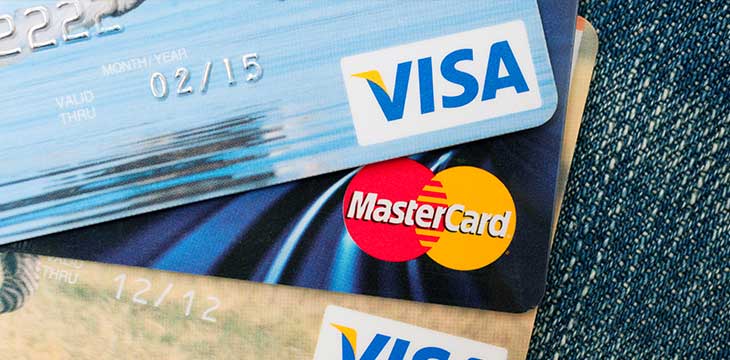|
Getting your Trinity Audio player ready...
|
Payments giant Visa is embracing Web3 as it tries to extend the distance between it and rival companies like Mastercard (NASDAQ: MA) and PayPal (NASDAQ: PYPL). The latest foray into the ecosystem comes in the form of two trademark filings that hint at a major play in non-fungible tokens (NFTs) and the metaverse.
The trademarks were filed with the United States Patent and Trademark Office (USPTO) on October 22. The first trademark provides for the use of “non-downloadable software” to “view, access, store, monitor, manage, trade, send, receive, transmit, and exchange digital currency, virtual currency, cryptocurrency, digital and blockchain assets, and non-fungible tokens (NFTs).”
The second trademark involves the metaverse and will see the use of the image and likeness of the payment company in virtual worlds “in which users can interact for recreational, leisure or entertainment purposes.”
VISA has filed 2 trademark applications claiming plans for:
▶️ Managing Digital, Virtual, and Cryptocurrency transactions
▶️ Digital currency + Cryptocurrency wallets
▶️ NFTs + Virtual goods
▶️ Providing virtual environments
…and more#NFT #Metaverse #Web3 #Cryptocurrency pic.twitter.com/SnTkt8jx4o— Mike Kondoudis (@KondoudisLaw) October 27, 2022
Visa has already staked its claim for a piece of market share in the digital asset industry with several partnerships. The latest of the partnerships is with Blockchain.com, which offers U.S. citizens a debit card that will allow them to pay for goods and services using their digital asset holdings.
In March 2021, Visa launched a pilot that would allow merchants to settle transactions with the USD Coin (USDC) in fiat. To understand NFTs, the payment giant splurged $150,000 to purchase a CryptoPunk collectible which it says is part of the process of “understanding the infrastructure requirements for a global brand to purchase, store, and leverage an NFT.”
The race between the rivals heats up
Payment firms are leaning toward Web3 in increasing fashion and are contributing their quota to adopting virtual currencies. Mastercard has 15 patents with the USPTO, including plans for a payment processor in the metaverse and an online marketplace for trading NFTs.
American Express has seven filings with the USPTO detailing plans for a concierge service in the metaverse and branding with virtual payment cards. PayPal and Block, formally known as Square, have all thrown their hats in the ring for metaverse development while has also enabled digital asset support for merchants around the globe.
“With the addition of crypto payouts, platforms using Connect can participate in the Web3 economy without having to acquire and store crypto themselves,” according to a Stripe statement. “Now, they can quickly pay out to their users in even more countries and improve their services for those who prefer crypto over traditional fiat payment methods.”
Watch: BSV Global Blockchain Convention presentation, BSV for Retail Payments, Remittances & Rewards

 03-01-2026
03-01-2026 




